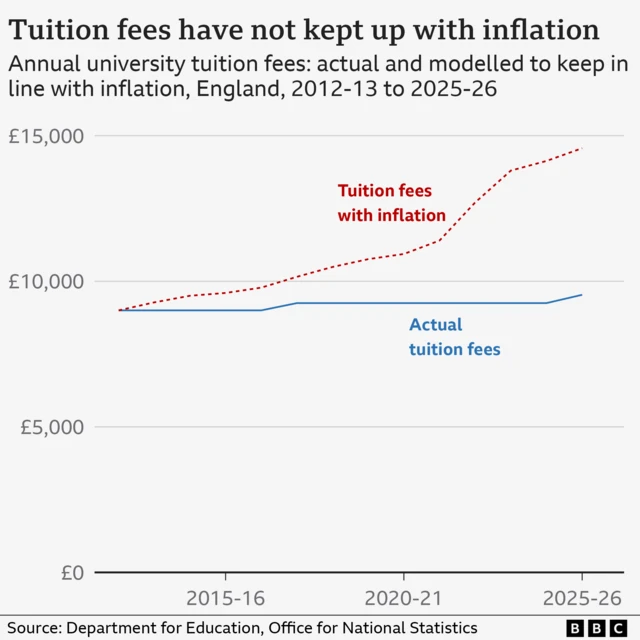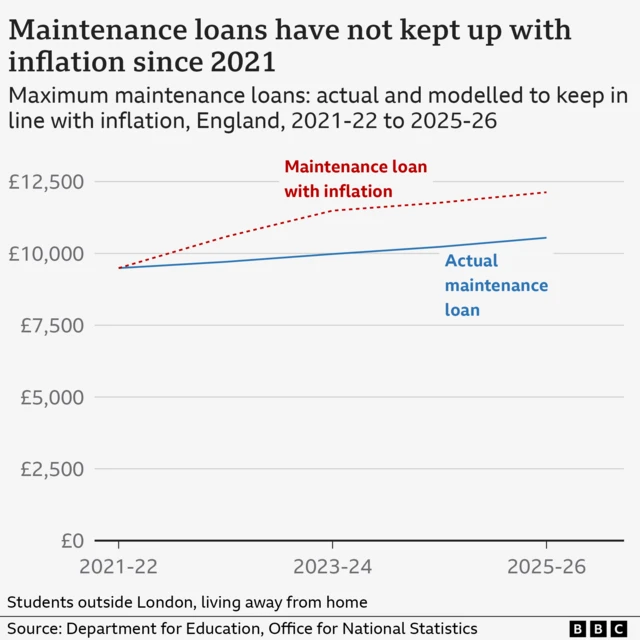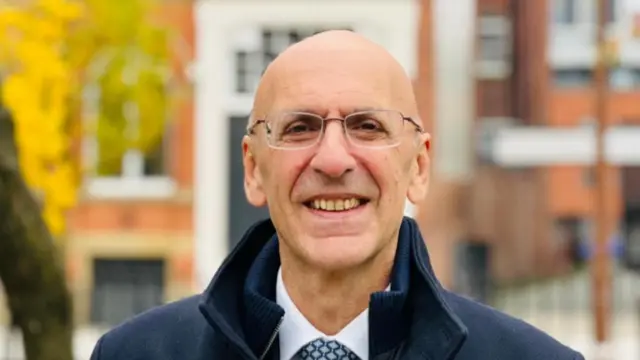What's been announced this afternoonpublished at 18:16 GMT 4 November 2024
We're wrapping up our live coverage of today's announcements about what students in England will pay for a year of university tuition. Here are the highlights:
- Tuition fees will rise to £9,535 next year, the first time that figure has increased in eight years
- Maintenance loans will also rise by 3.1%, providing students with up to £414 extra per year. Both rises are linked to inflation
- Education Secretary Bridget Phillipson says the government will set out a long-term plan for universities in the coming months, to bring major reform to the sector
- A lower fee limit of £5,760 will also be introduced for 2025/26 for foundation years in classroom-based subjects such as business, social science and humanities
In response, the Conservatives' new shadow education secretary Laura Trott said students will "suffer" from increased tuition fees when they "can least afford it".
The National Union of Students accused ministers of getting undergraduates to foot the bill "to keep the lights on" but the group representing UK universities welcomed both announcements on fees and loans.
There's more to read on this in our news story and we've also set out all you need to know about how much going to university costs.
Thanks for joining us. This page was written by Ben Hatton, Alex Boyd and Asya Robins. The editors were Aoife Walsh and Rob Corp.








